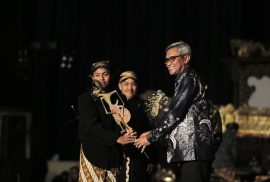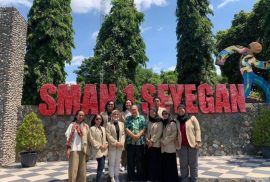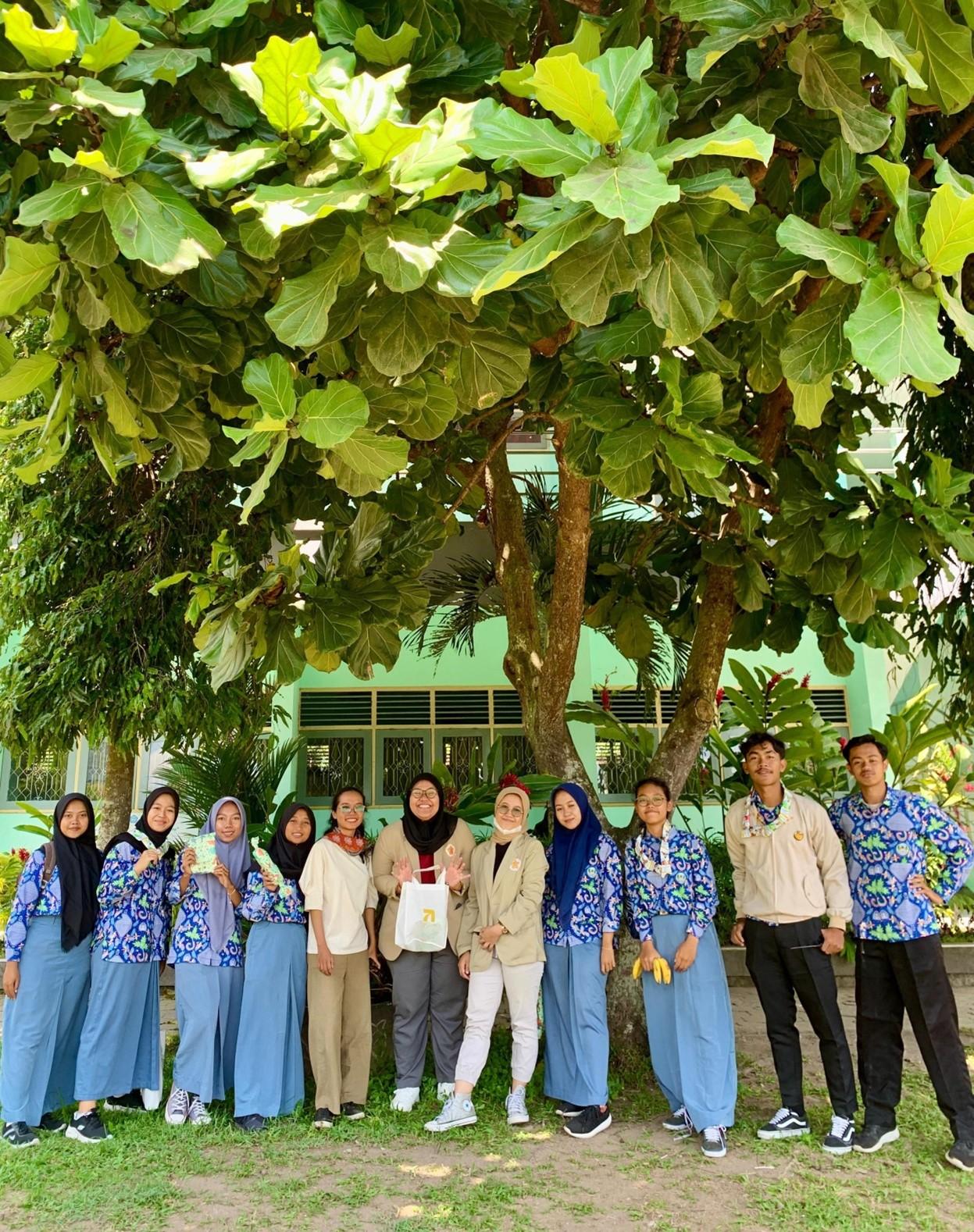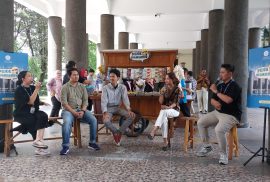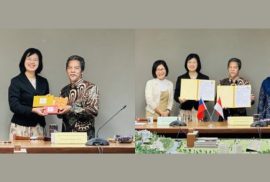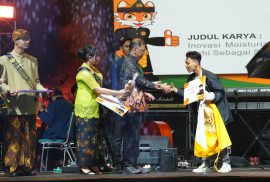n commemoration of the 74th Anniversary of Universitas Gadjah Mada (UGM), UGM held various events and activities. One of the events was a wayang kulit performance titled “Banjaran Dwijawara”. The performance was a cross-style collaboration, combining the Yogyakarta, Surakarta, Banyumasan, and East Javanese styles in one wayang performance. The event was held on Saturday (16/12/2023) at Grha Sabha Pramana.
The story “Banjaran Dwijawara” is a compilation of the biographies of Rama Bargawa, Resi Dorna, and Arjuna. These three characters are faced with various complex problems. Rama Bargawa faces the oligarchs who act arbitrarily, Resi Dorna faces the issue of inclusivity, while Arjuna is in an era of gender equality.
In the implementation, students from the Javanese Language, Literature, and Culture Study Program participated in enlivening and making the wayang performance a success. Their participation was manifested in their roles as the crew, the performers as musicians and singers who are members of the Keluarga Kesenian Mahasiswa Universitas Gadjah Mada, and Muhammad Siswoyo, a 2022 student, who became the dalang (puppeteer) of the East Javanese wayang kulit performance.
The story “Banjaran Dwijawara” is not only a form of entertainment, but also a means of learning through moral messages about how to behave and make decisions when facing a problem. In addition, this wayang kulit performance also serves as a medium to introduce and preserve wayang kulit art and its various styles, which are a form of cultural wealth in Indonesia. The introduction and preservation of Indonesian culture through this wayang performance is in line with point four of the Sustainable Development Goals (SDGs), namely Quality Education.

